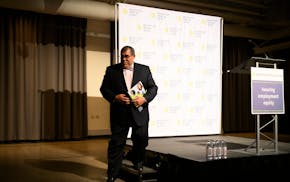President Joe Biden recently announced his student loan forgiveness plan. People making under $125,000, or married couples making less than $250,000, can have up to $10,000 in loans forgiven. Borrowers who qualified for Pell Grants can have up to $20,000 forgiven.
If all borrowers claim the benefit they're entitled to, some 43 million will get relief, including canceling the full remaining balance for roughly 20 million. Most of these borrowers took on debts without graduating, or loans to attend for-profit colleges and community college.
Debt forgiveness fulfills a campaign promise. It also sparked plenty of controversy.
To make my position clear, I expect the macroeconomic impact will be minimal, while the effect of debt relief for many borrowers will be profound. The loan forgiveness plan is an acknowledgement that the current system is badly broken and failing too many students. (Major reforms are still called for; forgiveness is only a first step.)
Whatever you think of the initiative, the personal finance question for qualifying borrowers is this: How are you going to take advantage of the opportunity created by loan forgiveness?
You might be carrying too much credit card debt. Well, start paying your credit card debt off.
Perhaps you've been trying to save for the down payment on a home. You can now regularly add more to your home-purchase nest egg.
Maybe you felt you were too close to the financial edge to take full advantage of your employer's retirement savings plan. Hike your contributions.
In other words, you need to create a plan on how best to improve your financial circumstances and stick to your money goals. My guess is that most beneficiaries will take advantage of the opportunity.
One reason is the economic literature on lotteries. Winning the lottery is an unexpected windfall and, to some extent, so is loan forgiveness. Prudence seems to be the norm among winners, not the exception.
In their 2021 paper "How Americans Respond to Idiosyncratic and Exogenous Changes in Household Wealth and Unearned Income," four economists looked into lottery winners. Theirs is a complex study, but among their findings is that "American lottery winners save most of the windfall for future periods."
One final personal note: I was left a voice mail last week telling me it was "imperative" to call back about my student loan forgiveness "because my status will expire soon."
Really? I graduated in 1976.
Beware of the fraudsters.
Farrell is economics contributor to the Star Tribune, Minnesota Public Radio and American Public Media's "Marketplace."

How to ward off porch pirates during the last-minute holiday package blitz
Party City to shutter hundreds of stores across the U.S., including 10 in Minnesota

Ramstad: Let's create more modest expectations about reining in federal spending

St. Paul civic booster Paul Williams looks back, and forward, as he retires from Project for Pride in Living
